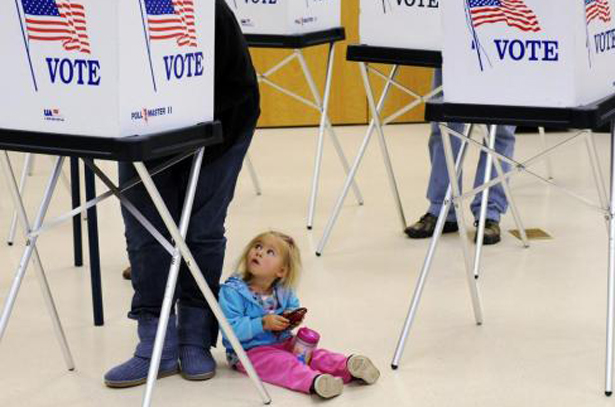
by Lil Tuttle
As a 501(c)(3) nonprofit organization, CBLPI doesn’t get involved in elections. As conservatives, however, we greatly value Americans’ right to elect their leaders in free and fair elections. Several recent news items suggest state and federal governments could and must do a better job to safeguard the integrity of the American voter registration and election ballot process.
Cyber Hacking
Law enforcement sources recently told CBS News that “about 10 states have had their [state election database] systems probed or breached by hackers, similar to what happened in Arizona and Illinois.”
Cyber security experts expressed concern about vulnerabilities in “states that use touch-screen voting machines that leave no paper trail.” There are a number of states that do:
Five states are completely paperless: Delaware, Georgia, Louisiana, New Jersey and South Carolina. Nine other states have some counties that use paperless systems: Arkansas, Indiana, Kansas, Kentucky, Mississippi, Pennsylvania, Tennessee, Texas and Virginia.
Security experts acknowledge the possibility, albeit remote at this point, of more advanced future cyber breaches designed to change the outcome of an American election: hackers could delete a percentage of registered voters in one or another political party to sway the final result, and hackers could alter voter machine software to change votes actually cast in an election.
If done frequently, even small cyber breaches can undermine faith in the election process, and that may be hackers’ objective:
Experts told CBS News that the ultimate goal of these hackers is not to necessarily change the outcome of the election; their main objective is to de-legitimize the outcome by sowing doubt, uncertainty and suspicion through a series of cyberattacks.
Inaccurate Voter Registration Databases
Under the intriguing headline, He Fought in WWII. He died in 2014. And He Just Registered to Vote in Virginia,” the Washington Post reports that “the FBI and local police are investigating how at least 19 dead Virginians were recently re-registered to vote in this critical swing state.”
It’s difficult to imagine this registration was not an obvious attempt to commit voter fraud. Yet there are far less obvious ways to commit voter fraud when so many state voter registrations are inaccurate or outdated.
A 2012 report by the Pew Center on the States found that voter registration systems were “inaccurate, costly and inefficient.” Key problems identified in the report were:
- Approximately 24 million – one of every eight – voter registrations in the U.S. are no longer valid or are significantly inaccurate.
- More than 1.8 million deceased individuals are listed as voters.
- Approximately 2.75 million people have registrations in more than one state.
Non-Citizens Registering and Voting
Voting is a right reserved solely to citizens of the U.S., but increasing numbers of non-citizens are registered to vote thanks to progressive Motor-Voter laws, which make it far too easy for them to do so.
A recent investigation in 8 of 133 Virginia counties by the Public Interest Legal Foundation and the Virginia Voter’s Alliance found 1046 aliens registered to vote illegally. Moreover, these non-citizens cast more than 200 ballots before being removed from voter rolls.
A similar PILF project investigating voter records in the city of Philadelphia PA found 86 illegally registered aliens had had their voting registrations terminated, but not before 40 ballots had been cast.
The Center for Immigration Studies reports that a total of 42.4 million immigrants (legal and illegal) were living in the U.S. in 2014 – the highest number ever in American history. No doubt some of those have become naturalized American citizens. But most have not, and that poses a significant vulnerability to the American election process unless the state and federal governments tighten up the voter registration and ballot process.
“The right to vote in a free and fair election is the most basic civil right, writes the Heritage Foundation, “one on which many of the other rights of the American people depend.
In its Solutions 2016 policy series, Heritage outlines six specific federal policies and eight specific state policies to secure election integrity, among them:
- Require all individuals who register to vote to provide documentation establishing that they are U.S. citizens.
- Require all voters in federal elections to present photographic identification, issued by the federal, state, local, or tribal government, when they vote at their polling place and to send copies of such identification when submitting an Absentee Ballot.
- Make all federal databases at the Social Security Administration and the Immigration and Customs Divisions of the Department of Homeland Security available to state election officials to verify the citizenship of registered voters.
- Amend the National Voter Registration Act of 1993 to allow states to purge individuals who have not voted in two federal elections.
Cyber security is likely be an ongoing election integrity concern for the foreseeable future. Inaccurate voter registration databases and non-citizen voting need not be. Reasonable, commonsense public policies can go a long way to securing election integrity and maintaining Americans’ faith in their election process.
Sources:
More State Election Databases Hacked Than Previously Thought, CBS News
He Fought in WWII. He Died in 2014. And He Just Registered to Vote in VA, Washington Post
Alien Invasion in Virginia: The discovery and coverup of noncitizen registration and voting, Public Interest Legal Foundation
Aliens & Felons: Thousands on the Voter Rolls in Philadelphia, Public Interest Legal Foundation
Immigrants in the United States: A Profile of the Foreign-Born Using 2014 and 2015 Census Bureau Data, Center for Immigration Studies
Inaccurate, Costly, and Inefficient: Evidence that America’s Voter Registration System Needs an Upgrade, Pew Center on the States
Solutions 2016: Voter Integrity, The Heritage Foundation
